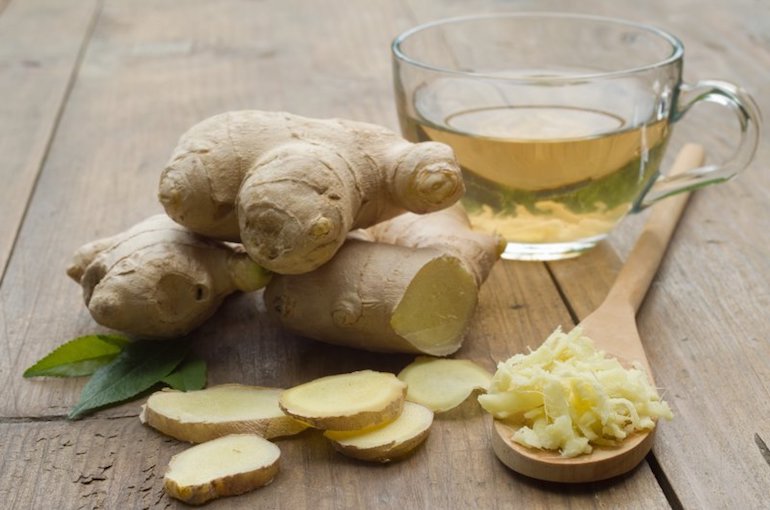
As we approach the end of the first month of the new year, many of us are still thinking about (and, if we’re lucky, practicing) our New Year’s resolutions. Getting healthier is always a top goal for many when a new year rolls around. For you, this may mean eating healthier and working out more consistently (both good things!). But did you know that when combined, healthy diet and exercise habits can improve your sleep, too?
Maintaining adequate sleep has a multitude of health benefits, from improving your memory to boosting your immune system, but these days, more and more people find it difficult to get the recommended seven to nine hours each night. While certain foods can actually make it harder for you to fall asleep, there are foods, drinks and spices you can enjoy that will actually help improve your sleep quality.
Cinnamon
In addition to adding a nice hint of spice to a variety of foods, cinnamon can aid the nervous system by calming blood sugar levels. Research published by the National Center for Biotechnology Information showed that people with type 2 diabetes that took daily cinnamon supplements had greater reductions in blood sugar levels compared with those who took a placebo.
This is because Sirt-1, a protein that is crucial for insulin regulation, is activated by resveratrol, an antioxidant that’s found in red wine. Cinnamon contains similar compounds to resveratrol, known as phenols, that may provide the same benefits.
Why does this matter? As we’ve discussed before, blood sugar and sleep are closely related. High blood sugar levels can cause many restless nights as your kidney tries to relieve the excess sugar through urination. Low blood sugar levels can affect your sleep, too, causing hunger, chills, sweating, and more — all of which can wake you up at night. Low blood sugar has even been linked to sleepwalking and nightmares.
Green, Black and White Tea
These teas contain L-theanine, an amino acid that can help you go to sleep at night by reducing anxiety. L-theanine increases the activity of alpha brain waves, which help you relax. In one study on boys ages 8-12 with ADHD, L-theanine increased sleep efficiency and lessened the amount of ADHD-related disturbances during sleep.
Ginger
Ginger aids in easing the stomach, containing a chemical ingredient called gingerol that helps calm stomach contractions. Ginger can also assist in reducing anxiety because it binds to the brain’s serotonin receptor, the chemical associated with mood and stress.
Passionfruit
Passionfruit contains harmon, a compound that has relaxing and sedative properties, which can help to calm restless thoughts before bed.
Liquorice
Liquorice is often used in herbal medicine to help with both anxiety and depression. In botanical medicine, liquorice is known as an adrenal gland tonic, which means that it can help calm frazzled nerves that may keep you up at night.
Lemon, Lime, & Blood Orange
These citrus fruits are all rich in vitamin C, which nourishes the adrenal glands in the same way as liquorice, reducing stress and anxiety.
Lucuma
This is a South American fruit that can help balance blood sugar for optimal sleep. It tastes a little like maple, and can be used in powdered form as a natural sweetener, providing nutrients to your body.
Chamomile
Chamomile has a wide range of anti-inflammatory and wound healing properties. It can even help heal symptoms of the common cold! It also contains the flavonoid apigen, which helps to lessen anxiety.
Baobab
The fruit baobab is also a great source of Vitamin C, as well as B complex vitamins and potassium. B vitamins are known for helping to calm stress, and potassium may help you stay asleep. In fact, one study showed that potassium can help regulate the sleep/wake cycle (also known as the circadian rhythm).
The Bottom Line
These foods, drinks and spices are all proven to help you fall and stay asleep. While no solution is one-size-fits-all, it never hurts to try natural remedies that may help your sleep quality.
If you try some of the items listed above and still consistently have difficulty falling asleep or feeling rested during the day, you may have a sleep disorder such as obstructive sleep apnea, a condition that causes cessations in breathing throughout the night. If sleep apnea or other sleep disorders are left untreated, changing your dietary habits likely won’t improve how rested you feel.
If you’re curious to learn more about sleep apnea or the underlying cause of your sleep issues, a sleep specialist such as Dr. Jeff Rodgers can help you find an effective treatment option.
